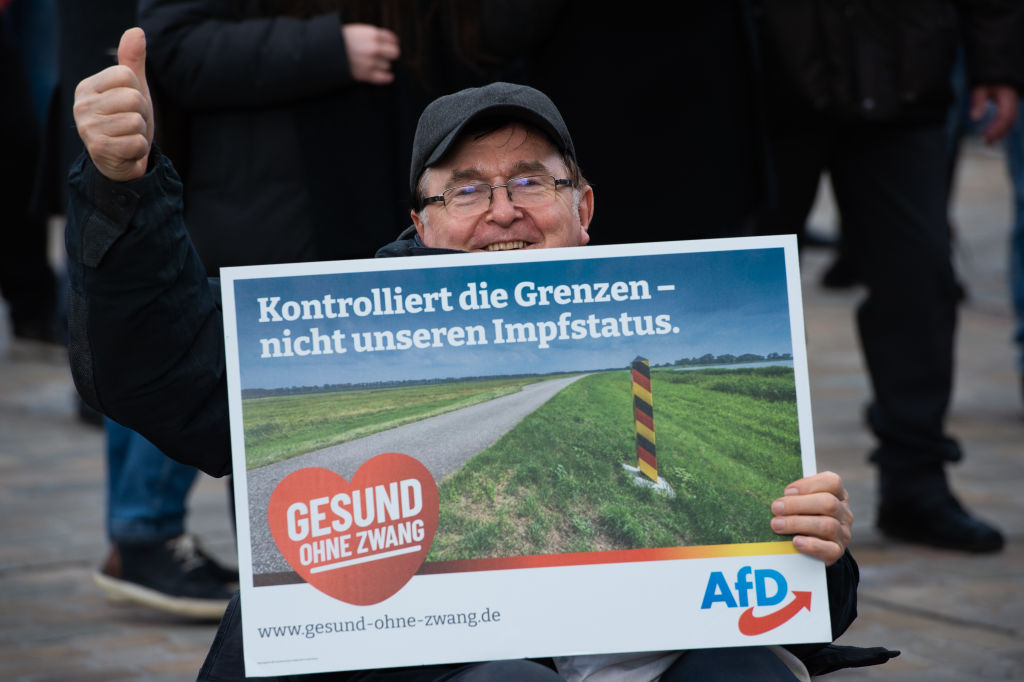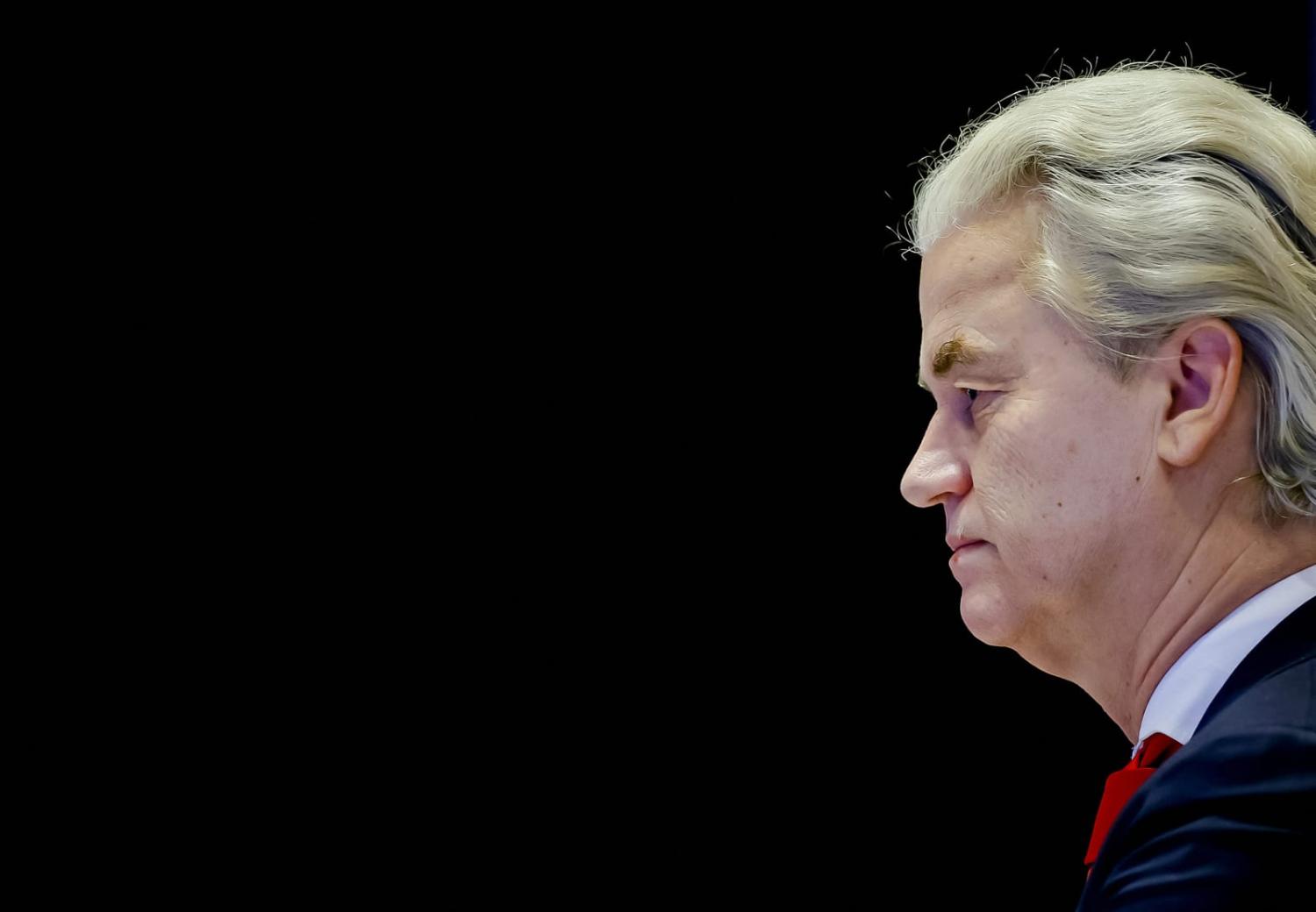The advent of 2024 in Europe was heralded by the cries of doom prophets. Recessions, strikes, street protests, lingering inflation, the thunderous echoes of conflict in the Middle East and – let us not forget – the heavy burden of a seemingly intractable war in Ukraine: to the pessimistic mind, these look like the outriders of an impending political apocalypse.
Yes, in Poland voters – especially young ones – mobilised in unprecedented numbers to turf out a right-wing populist government and halt the hollowing-out of the country’s judiciary and public media at what felt like a brief stroke before political midnight. But this took an extraordinary – indeed, historical – effort to achieve, and Poland increasingly looks like an exception to a trend of populist successes across the continent.
Perhaps most ominously of all, in the Netherlands, the party of Geert Wilders – one of the oldest and most notorious faces of the European hard right – comfortably finished in first place in November’s vote, more than doubling its 2021 result.
With major elections set to take place in the United States, India, Pakistan, Indonesia, Mexico, and South Africa, the European dimensions of 2024’s electoral “super year” may well escape international notice. But the politics of the Old Continent are nevertheless poised at a – possibly very dangerous and consequential – threshold moment.
A series of votes are scheduled to take place across Europe in 2024, with the headline act being the European Parliament elections in June. And, as Wilders’ success reminds us, right-wing populism will be an especially loud presence. 2024 may well reveal whether Europe has passed from the age of shock into the age of normalisation.
Traditional centrist parties everywhere have proved powerless in the face of right-wing, anti-elitist upstarts; often, indeed, they have been entirely swallowed up by them. And while the populist spectre has haunted European politics for some decades, recent years have witnessed a qualitative change. A recent continent-wide study has found a perceptible increase in electoral support over the past decade for populists and extremists across the spectrum – but with the most sizable growth coming from the right. Today, up to one-third of voters across Europe can be expected to choose a populist option.

Wilders has not yet been able to translate his electoral triumph into forming a government, though the talks are ongoing. But the story of his success in November offers some general lessons in how to navigate the choppy waters ahead. First, one might point to Wilders’ efforts to soften his image. The Dutch media christened the new, courteous, and temperate manifestation of this old firebrand as “Geert Milders”. During the campaign, he downplayed the anti-Islam stance with which his politics have long been synonymous. In addition, he has ceased to make the case for his country to exit the European Union.
In this respect, Wilders’ strategy echoes those of his populist comrades across Europe, of whom Giorgia Meloni in Italy and Marine Le Pen in France are the most notable examples. Wilders’ novel persona can hardly have convinced anyone – he is, after all, one of the Netherlands’ most recognisable politicians, and has been for the best part of a generation. But this was not really the intention. The point rather was to exude respectability: to make the attacks from the mainstream sound like pure hysteria or – worse – an establishment conspiracy.
If Wilders’ own labours in courting respectability proved one critical factor in his success, one cannot ignore the respect conferred upon him by his ostensible rivals. Dilan Yeşilgöz, the head of the liberal-conservative People's Party for Freedom and Democracy (VVD), departed from the position of her predecessor, the long-serving Premier Mark Rutte, in refusing to definitively rule out entering into coalition talks with Wilders. It is often observed that centre-right attempts to imitate the extremes only tend to boost the latter and harm the former; so too does holding out the prospect of government only serve to legitimise, and thus embolden, them.
It may not be too late. Sober-minded centrists still have the option of firmly delimiting themselves from the populists while at the same time hacking away at their thin façade of respectability. Much more difficult, however, will be escaping a third factor: the political feedback loop. The populist parties feed off a weakened centre, while their successes enfeeble it ever more. Compounding the issue, high levels of populist support inevitably force the other parties to band together in larger and more unstable anti-populist fronts. Needless to say, these unwieldly coalitions in turn reinforce the populist narrative that the establishment parties, whatever their pretensions, are fundamentally “all the same”.
Of course, warding off the populist threat requires more than mere political tactics. But, troublingly, populism – and the deeper social discontents that it speaks to – cannot easily be resolved in the policy domain either. Take immigration, the one issue that is intuitively most powerful in driving far-right support. A voters’ survey on the day of the Dutch election found immigration to be only the sixth-most important issue to voters. This reflects wider findings in Europe. The results of the latest “European Social Survey”, for instance, problematise the notion that there is a direct correlation between the far-right’s expanded vote share and negative attitudes towards immigration. And a recent study conducted under the auspices of the European Council for Foreign Relations also gives reason to question any automatic affinity between voters’ concern about immigration and populist support. In fact, Europe’s populists are a far more diverse and supple group than their critics are often willing to recognise.
The cascade of crises that have inundated Europe in recent years have aided the populist cause by illuminating weakness and dysfunction among the old power-holders. Banishing the spectre of populism will demand no shortage of skill, patience, and political reform. But one senses it will also require a great deal of luck.

